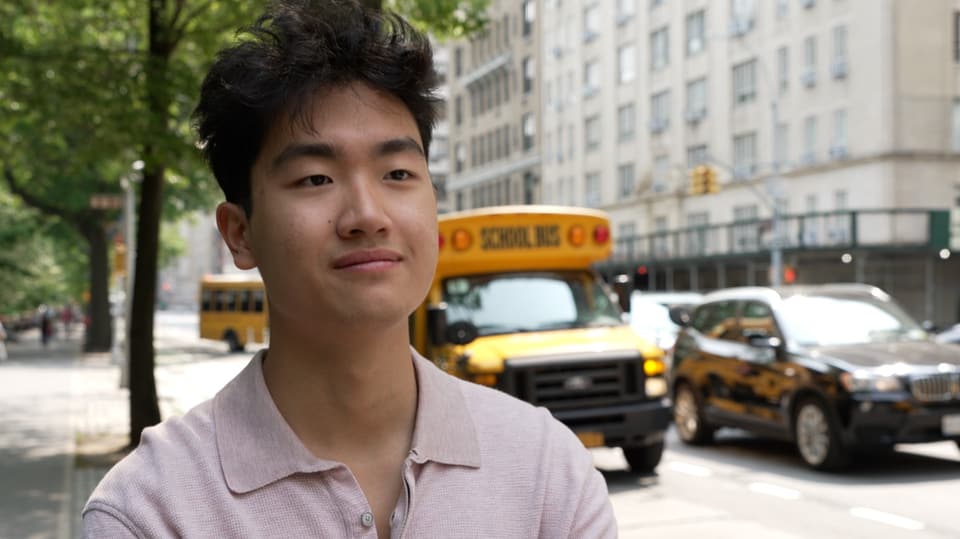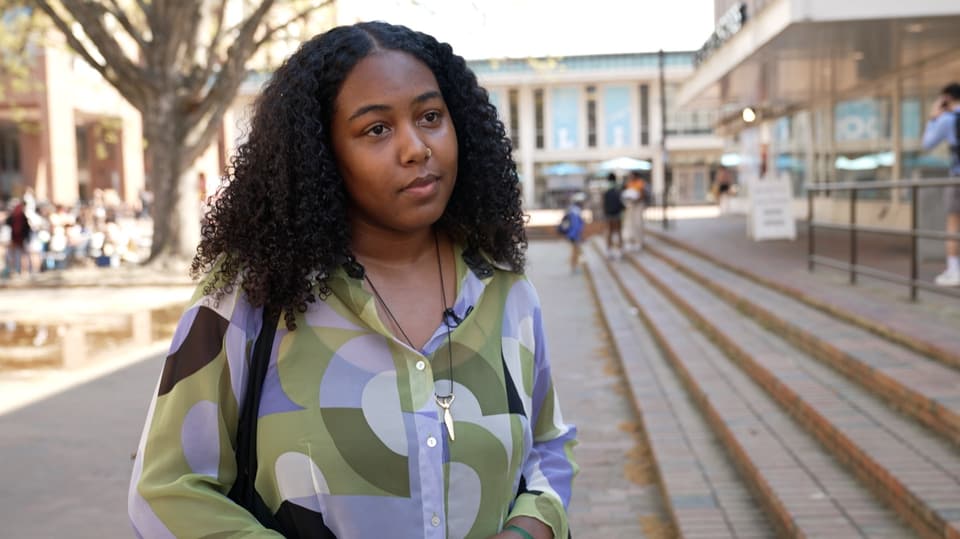Should universities be allowed to take skin color into account when selecting their students? This is decided by the highest court in the USA, the Supreme Court.
Specifically, it is about support measures for Afro-American students, the so-called “Affirmative Action”. Opponents argue that these support measures would, in turn, discriminate against white and Asian youth. It’s quite possible that the conservative majority on the Supreme Court will ban taking into account skin color (or race, as it’s often called in the US).
Julia Clark fights for black empowerment. Because these are still disadvantaged in the USA. “If we abolish the support measures, we will cement inequality.”
Legend:
Julia Clark wants Black students at the University of North Carolina to be represented according to their population. It’s currently just over 8 percent at the university – in the population of North Carolina it’s 22 percent.
SRF
Black children are more likely to grow up in low-income neighborhoods. “Schools that are attended by a majority of blacks are poorly equipped and underfunded. Often they don’t offer the same offers as in white quarters,” argues the president of the “Black Student Movement” at the University of North Carolina, Chapel Hill. Discrimination often begins in primary school and continues through to high school. In addition, black children are often not graded without prejudice, says Clark. In the United States, race affects all aspects of life.
Blacks underrepresented at top universities
Funding measures at the university are therefore still necessary, says Julia Clark. Although blacks make up 22 percent of North Carolina’s population, they make up just over 8 percent at the largest state university. “This means that although skin color is taken into account for approval, there is still an inequality.”
Jacob James disagrees: skin color should not be a criterion for admission to a university. «Why should we exclude people because of their skin color and favor others because of their skin color? That’s what we fought in the civil rights movement. And now we’re going backwards in the opposite direction.” James is the President of the Republican Student Union at the University of North Carolina. He is white. He thinks that in order to overcome racial discrimination, one should not discriminate again because of race, i.e., in return, disadvantage white and Asian young people.

Legend:
Jacob James thinks it’s wrong to take skin color into account when choosing students. Discrimination must not be overcome with a new form of discrimination.
SRF
The university is the oldest state university in the USA – and one of the most sought-after. When selecting its students, the university takes into account grades, but also several other factors, including skin color. This allows the university, in principle, to prioritize one black youth over another with higher grades. The goal of the university is to achieve ethnic diversity in the student body.
But the support measures for more ethnic diversity come at the expense of high-performing young people who are not black, say critics.
Why should we exclude people because of their skin color and favor others because of their skin color?
Especially at the expense of another minority: an above-average number of applicants of Asian origin have an outstanding track record.
Calvin Yang supports the lawsuit before the Supreme Court. He was rejected from his dream university, Harvard. Although he had a lot to show: top marks, top athlete, start-up founder, co-organizer of the largest climate protest in the USA.
Hidden Odds Against Asian Descent Youth?
“My race is a factor in why I wasn’t accepted into Harvard. Because they said they already had too many Asian students. That’s why I suspect they have some kind of quota against Asians,” Calvin Yang is convinced. The Asian minority in American society doesn’t have it easy either.

Legend:
During his time at a private high school, Calvin Yang often worked until 1 a.m. in order to graduate with top grades and extracurricular achievements. He believes applicants of Asian descent are treated unfairly.
SRF
Yang admits there’s always some coincidence, as Harvard receives thousands of applications from outstanding students. And yet applicants of Asian origin are in fact exposed to even higher requirements.
“I think that’s not fair. Because Asians are not born smarter. But we sacrifice a lot of our free time. Instead of playing sports, hanging out with friends, which is what teenagers do, we prepare for exams.” Now they would be punished by the promotion measures for blacks.
Consider income instead of skin color?
The three agree that diversity at universities is important. But how can you reach them? James and Yang have similar solutions. “You can give an advantage to those young people who come from low-income regions.”
It’s important that there are Black leaders in the country long after we’ve been shut out.
But that alone cannot make up for the deep-rooted discrimination against blacks, says Julia Clark. She studies in buildings built by slaves whose doors have long been closed to black students. “It’s important that there are Black leaders in the country after we’ve been shut out for a long time. We are still being disadvantaged, fighting for doors to open, but then all the seats at the table are already taken.”

Legend:
Julia Clark spends a lot of time with other black students. She says she still experiences prejudice and has to justify that she is qualified to be at this elite university.
SRF
To this day, she has to keep justifying herself that she deserves to be here. In her spare time, she tutors black children from underprivileged neighborhoods so that they have a better chance of a successful career.
In the USA, the competition for a good education and a good job is fierce. The discussion about fair opportunities is correspondingly existential. Are support measures important to compensate for a racist history – or unfair to young people who are willing to perform? Or maybe both? It’s a dilemma that hits America to the core.
Calvin Yang is now studying at another top university, the University of California at Berkeley. There, ethnic origin is not taken into account when selecting students.
